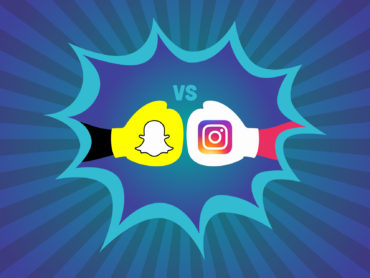Why Influencer Marketing is Here to Stay
Just when you thought you had a good grasp on the ever-changing dynamics of social media marketing, in walks its cousin influencer marketing. Whether you work in marketing or communications or not, you’ve likely heard the term influencer marketing once or twice. Shifting your social media strategy may seem like a daunting task but it’s time to face the facts – influencer marketing is here to stay.
What is an influencer? The answer is easier than you think – it’s someone with influence. While a celebrity could be an influencer in some cases, these days influencers typically refer to someone with a blog, vlog or strong social media presence. However, the most important thing to consider when identifying an influencer isn’t the number of followers he or she has – it’s the amount of influence they hold.
Influencers typically focus on an industry or niche that is their specialty – from consumer technology to beauty, fitness, health, art, travel… you name it! These people have proven themselves experts in the industry and often provide advice, tips and their opinions on topics in the field in which they focus. The influencer’s thoughts and feedback are valuable to their followers who listen and take their advice – hence, they have influence over their followers.
Why should your brand consider an influencer marketing campaign? First and foremost, millennials — people born anywhere between the late 1970s and early 2000s — make up a sizeable and growing segment of the marketplace. While they are the most lucrative market, according to Hubspot, they are likely the most picky. In fact, 84% don’t trust traditional advertising and instead want a content-driven, personalized experience when it comes to making a purchase.
These buyers don’t want to be sold to and are strongly turned off by the hard, obvious sale. Gone are the days of standing in front of potential buyers with a rotating sign shouting “BUY THIS!” Instead, buyers today are more willing to do their research prior to purchasing and trust their peers more than those they feel are just looking to sell product.
When it comes to peer recommendations, millennials today are looking for authentic, relatable content with advice they can truly depend on. While they may have their favorite celebrities who they follow online, they know that often the celebrities are given a script and will say whatever the brand tells them to, which creates a distrust in the brand message.
Similarly, buyers can tell when an influencer is in cahoots with a brand or product as well (much in part due to the FTC’s guidelines). However, influencers typically don’t want to abuse their power and are therefore selective with the types of partnerships and product endorsements they take on. Generally speaking, influencers will only promote a brand or product they genuinely believe in. They know their audience can see right through inauthenticity or when they are just trying to make a quick buck promoting the latest fitness tea.
When selecting an influencer to work with on a campaign, be sure to consider more than just the size of their audience. Consider the core demographics of their audience – and how well it aligns with your target audience. How engaged is their audience? Have they proven themselves trusted “experts” in the field?
Influencer marketing means getting your brand in front of a targeted audience through an authentic spokesperson. While influencers are relaying your brand message, they are doing it through their own voice and their own experience, in turn making the message more credible and more likely to move the needle when it comes to ROI.
If you aren’t sure where to start when it comes to how influencer marketing fits in to your current social media plan, I’d be happy to help steer you in the right direction. Feel free to contact eally@randjsc.com or reach out via Twitter at @rjscerin.





















































































